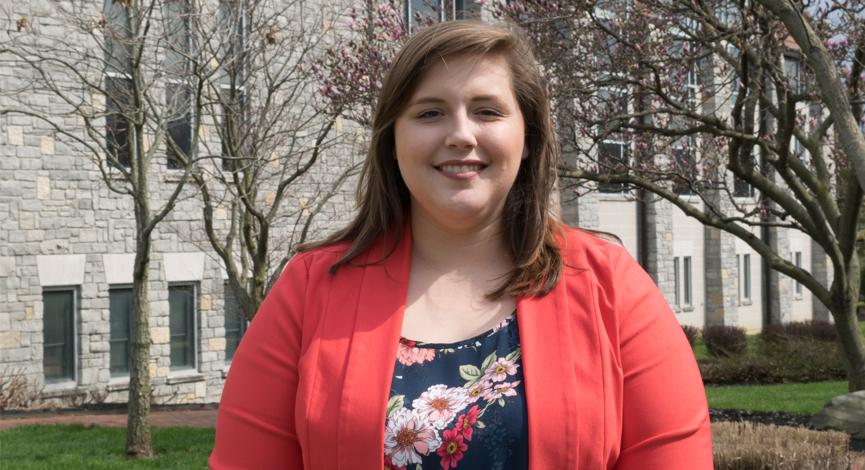
Microbiology wasn’t something Kaylee Wilburn was introduced to in high school, or even through her associate’s degree science coursework. But she’s eager to jump on board to continue her studies in a field that is growing in popularity and impact.
“It’s important to me to be in a field that impacts people and society,” says Kaylee, a December graduate who’s off to Bowling Green State University to pursue a master’s degree in microbiology. “It’s a really great field to make a significant impact without having to deal with some of the negative aspects of the health-care profession.”
It wasn’t her choice of major when she transferred to Heidelberg. But conference and networking opportunities, along with some awesome professor-student bonds, convinced her. The tipping point was her positive experience with Dr. Justin Pruneski’s Course-Based Undergraduate Research Experience (CURE) last year.
Through the course, Justin exposed students to the Small World Initiative (SWI), which uses undergraduate research “crowdsourcing” to tackle the growing problem of antibiotic resistance. Since it launched in 2012, SWI has grown to nearly 300 participating colleges and universities around the world.
After her introduction to CURE and attendance at a biology conference at BGSU, Kaylee met Dr. Hans Wildschutte, who is involved with the SWI there. “IT worked well that I had that (CURE) experience here. It got my foot in the door at BG,” she said. After the conference, she reached out to Dr. Wildschutte directly, and the two communicated for several months before she decided on BG for grad school.
Kaylee credits her Heidelberg professor, Justin, with helping her network, especially at regional and national conferences. She and friend Enya Granados, who also is graduating in May with a double major in biology and education, traveled to St. Louis and Denver for the National Association of Biology Teachers conference with Justin.
Dr. P. is amazing at helping students network. He really listens to what our interests are and what we care about,” Kaylee said. “I feel like he lets our knowledge bloom.
In fact, it was Justin’s impact on Kaylee that convinced her that she could be successful at Heidelberg after she transferred. “It was really challenging at first because the community is so tight. I was the new kid … kind of an outsider,” she said. “But he reached out to me right away. He’s the main reason I stayed.”
That first semester was tough for another reason: genetics class. But after she got through that, Kaylee knew she was equipped to handle a science and education (adolescent/young adult 7-12 science) double major. In ways, she trailblazed her way through her coursework. With biology as the scaffolding, she was able to pursue an integrated option in education with some creative scheduling, new and independent study courses and a lot of encouragement from her professors.
“Dr. (Karen) Jones in the Education Department was a huge cheerleader for me,” Kaylee said. “She worked with me one-on-one every semester and made adjustments or changes that set me up for finishing my degree in a timely manner.
You don’t get that at other schools. The fact that I could walk into any professor’s office at any time is amazing. There wasn’t a professor who didn’t care about my education.
So, the young woman who first thought she’d pursue a career in mortuary science has persevered. “I am not the same student I was when I came to Heidelberg,” she said. “My study habits and my work ethic changed. I had to rise to Heidelberg’s high level and high expectations, and I did.”
Kaylee’s master’s program at BG has the potential to roll right into a Ph.D. program. That would lead her to her ultimate goal: “Science education and research with students is where I want to be. It’s the perfect balance. Just like Dr. P.”